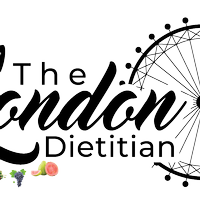Ok, so you’re undergoing IVF and you are about to have either a fresh or a frozen embryo transfer. During your treatment, you probably have made various dietary and lifestyle changes to help improve sperm and egg quality. But did you know that nutrition can also play an important role in increasing the chances of the embryo implanting? Imagine your uterus as a home waiting for the arrival of the embryo. For your embryo, a welcoming home means a uterus lining which is not too thin nor too thick and this lining can indeed be influenced by diet. Your uterus is a dynamic organ which is always restructuring- just after ovulation, it starts to thicken due to the effects of the hormone progesterone. When you get your period, it is because the egg hasn’t been fertilised and so the change in hormone levels lead to the shedding of the uterine lining. Women who have too low progesterone lining will find it difficult to thicken the lining and so are less likely to get pregnant. Luckily, there are some foods which contain nutrients that can help improve the levels of progesterone and also improve endometrial lining. So, what are my top tips (and no, pineapple does not feature on this list!)
Tip #1: Vitamins are kings:
- Vitamin C: One study has shown that supplementation with vitamin C helped to improve progesterone levels in women with luteal phase defect (a condition whereby women have low progesterone levels). However, supplementation is not the only way to improve your vitamin C levels since it is a vitamin that is found in abundance in various fruits and veg such as potatoes, broccoli, brussel sprouts, tomatoes, peppers, citrus fruits, kiwi and strawberries. Aim to include a variety of these foods daily in your diet.
- Vitamin B6: this vitamin is involved in the process of making progesterone, another key nutrient you want to make sure you are getting enough of. Good sources include: milk, oats, soy, chickpeas, bananas, tuna, salmon, lead red meat and chicken.
- Vitamin E: Some studies have shown that taking vitamin E supplements for 12 weeks prior to the date of the transfer can help improve fertility rates. However, these must be stopped at pregnancy. Alternatively, try to improve your oral intake naturally through foods such as olive oil, avocadoes, nuts and seeds.
Tip #2: Swap the white for the brown.
Research has shown that wholegrains help to improve the lining of the uterus and this effect is further improved the higher the whole grain intake. The research suggests to aim for 48g of wholegrains per day so try having some porridge with fruit for breakfast, wholegrain pasta in a tomato sauce for Lunch, and wild rice at dinner. Be wary though, marketing practices can confuse many of us and lead us to believe that a product is wholegrain when it is in fact not. Do not get confused by the words ‘wheat’, ‘seeded’ or ‘multigrain’. Wheat just means the type of grain used but it can still be refined. Additionally, multigrain just means that that a range of grains were used, but again, it can still be white. Even if you are using rye, seeded, granary, sourdough etc, the key word you want to be looking for is ‘wholegrain’ or ‘wholemeal’.
Tip #3: A need for greens
So, it turns out that mums were right about banging on about greens when we were kids. Not only are they super healthy for our general wellbeing, research has shown that they can specifically help with implantation. This is because they contain a high amount of folate. This nutrient is well known for its effects on reducing the risk of neural tube defect and now research has shown that in women undergoing assisted reproductive techniques, those that had higher folate intakes had improved implantation and clinical pregnancy outcomes. Try and have 1 cup of greens daily. Bonus if they are of a darker green shade as the darker it is, the more folate it contains.
Tip #4: Eat from the sea
Studies have shown that omega 3 fats help to boost rates of implantation through their anti-inflammatory effects. Sources of oily fish include herring, salmon, fresh tuna, pilchards, sardines, sprats, trout and mackerel.
Tip #5: Drink the red (no, not red wine)
There have been suggestions that beetroot juice can help improve rates of implantation. This is because beetroot contains a compound called nitric oxide which researchers believe may help support implantation due to its effect on blood vessels. The nitric oxide helps to dilate these blood vessels which in turn allows more oxygenated, nutrient rich blood reach the uterus, creating a healthier and more receptive environment for the embryo. It is important to note that so far, only a small study has reported these benefits which is why more research is needed before this advice can become widespread. However, adding some more beetroot into your diet will not cause you any harm and will in fact provide you with more nutrients- a win-win situation!
Need help or support when it comes to implementing the above and get it tailored for you? Book in for your FREE discovery call to discuss your individual requirements and how I can support you when it comes to starting or growing your family!

